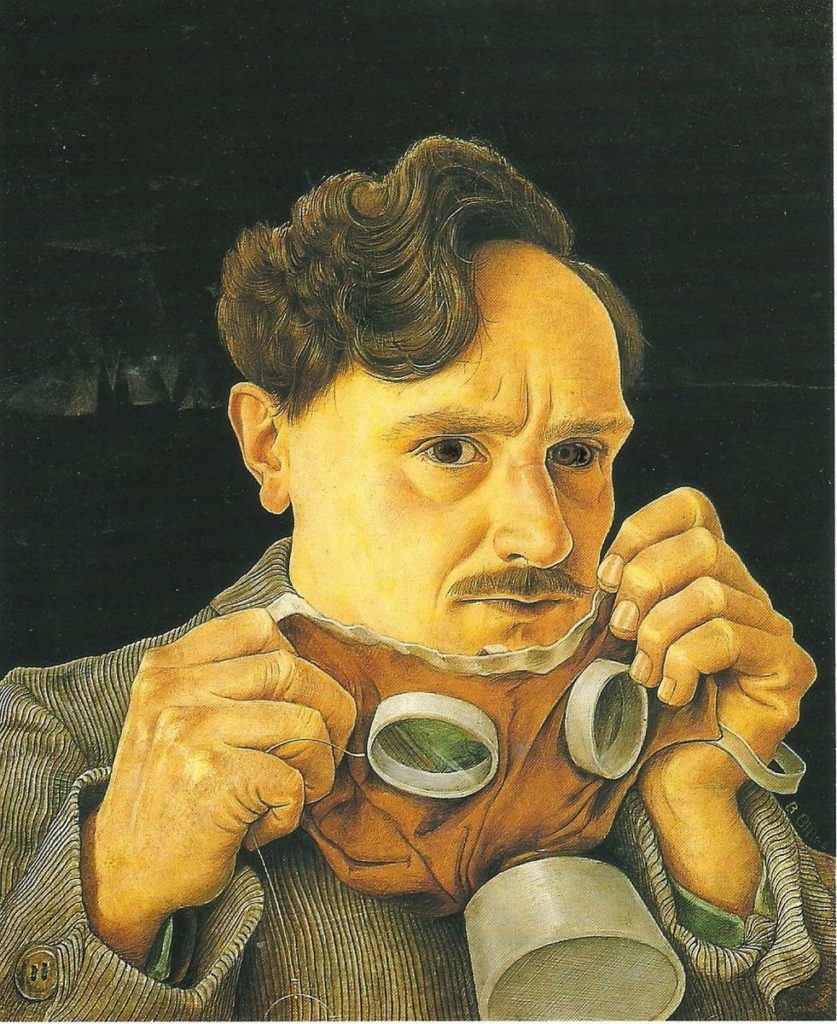"It seems that Americans are in the midst of a raging epidemic of mental illness...the tally of those who are so disabled by mental disorders that they qualify for Supplemental Security Income (SSI) or Social Security Disability Insurance (SSDI) increased nearly two and a half times between 1987 and 2007—from one in 184 Americans to one in seventy-six. For children, the rise is even more startling—a thirty-five-fold increase in the same two decades. Mental illness is now the leading cause of disability in children, well ahead of physical disabilities like cerebral palsy or Down syndrome." Marcia Angell (The Epidemic of Mental Illness, Why?; NYRB 2011) "Drugs were around a long time … [Read more...]
Reading What Was Never Written
"Historical materialism wishes to retain that image of the past which unexpectedly appears to man singled out by history at a moment of danger. The danger affects both the content of the tradition and its receivers. The same threat hangs over both: that of becoming a tool of the ruling classes." Walter Benjamin (On the Philosophy of History) “The motion which took shape in creation can also be interpreted as linguistic motion." Gershom Scholem (The Name of God and the Linguistic Theory of the Kabbalah) "It simply goes without saying that the falling of a human hair must matter more to the devil than to God, since the devil really loses that hair and God does not." Frank Kafka (The … [Read more...]
What is the Experiment, again?
“Up until 1909, Freud, to speak broadly, had been fascinated with the dynamics of desire. He wanted to know how the unconscious, the seat and source of desire, worked and in particular how it expressed itself in neuroses and dreams and in works of art. It was during this period that Freud was inclined to see erotic urges—and also, less consequentially, aggressive drives—at the root of human behavior. But as time went on, Freud became more and more preoccupied with the issue of authority, and with the agency that he thought of as the center of authority in the human psyche, the superego, or over-I.” Mark Edmundson (The Death of Sigmund Freud) “Impressionism depended for its force on … [Read more...]
Heads I Win, Tails You Lose
"I was impressed by the fact that even an advanced schizophrenic process had proved to be reversible or capable of being favorably influenced by a human contact. These were quite unusual notions at the time. I thought that perhaps methods could be devised by which I could help the patient maintain, increase, strengthen the achieved amelioration, even outside of the hospital environment. But of course I had no idea of how to do it. I had nevertheless learned that whatever benefit the patient could receive, had to come from his bonds with at least another human being." Sylvano Arieti (Interpretation of Schizophrenia) "Think neither of the good nor bad, but tell me what is your original … [Read more...]
An Eye for an I
"It is one of Schmitt’s primary observations that the political is based on secularized theological concepts (Political Theology). This claim could, for example, describe how laws can be seen as spiritual forces to which people comply." Elinor Darzi (Lyotard, Political Theology) "The philosophy of Hitler is simplistic [primaire]. But the primitive powers that burn within it burst open its wretched phraseology under the pressure of an elementary force. They awaken the secret nostalgia within the German soul. Hitlerism is more than a contagion or a madness; it is an awakening of elementary feelings. But from this point on, this frighteningly dangerous phenomenon becomes philosophically … [Read more...]
Notes on Turning Seventy
"As long as the truth of art remains a mystery to us, the untruth of kitsch will continue filling us with unrest.” Ludwig Giesz (Phänomenologie des Kitsches) ”...activity is not to be regarded as an appendix,as merely what comes after thought, but enters into theory at every point and is inseparable from it.” Max Horkheimer (On the Problem of Truth, 1935) "It must not be forgotten that every media professional is bound by wages and other rewards and recompenses to a master, and sometimes to several; and that every one of them knows he is dispensable." Guy Debord (Comments on the Society of the Spectacle) “Most people, in fact, will not take the trouble in finding out the truth, … [Read more...]
Checkpoints on the Frontier of Desire
"In spite of First-World nationalism that imagines its subjects as immune to the threat of infectious disease, our post-postmodern, post-human, post-natural society nevertheless retains the structural paradigms of contagion and infection in discourses beyond biomedicine. We are strikingly not beyond contagion." Kari Nixon & Lorenzo Servitje (Endemic) "This, I suspect, will be no radical transformation, no shift into a world 'after nature' or a 'posthuman future.'Perhaps it will not even constitute an “event.” But I think, in all manner of small ways,most of which will soon be routinized and taken for granted, things will not be quite the same again." Nikolas Rose (The Politics of Life … [Read more...]
The Dream is the Mother
"Part of the difficulty in recognizing outbreaks of mass sociogenic illness has to do with its diverse nature. A historical review of these events suggests that the features of mass sociogenic illnesses tend to mirror popular social and cultural preoccupations that define distinct eras and reflect unique social beliefs about the nature of the world." Erica Weir (Mass Sociogenic Illness, Canadian Medical Association Journal, 2005) “America is no place for an artist: to be an artist is to be a moral leper, an economic misfit, a social liability. A corn-fed hog enjoys a better life than a creative writer, painter or musician. To be a rabbit is better still.” Henry Miller (The Air … [Read more...]








